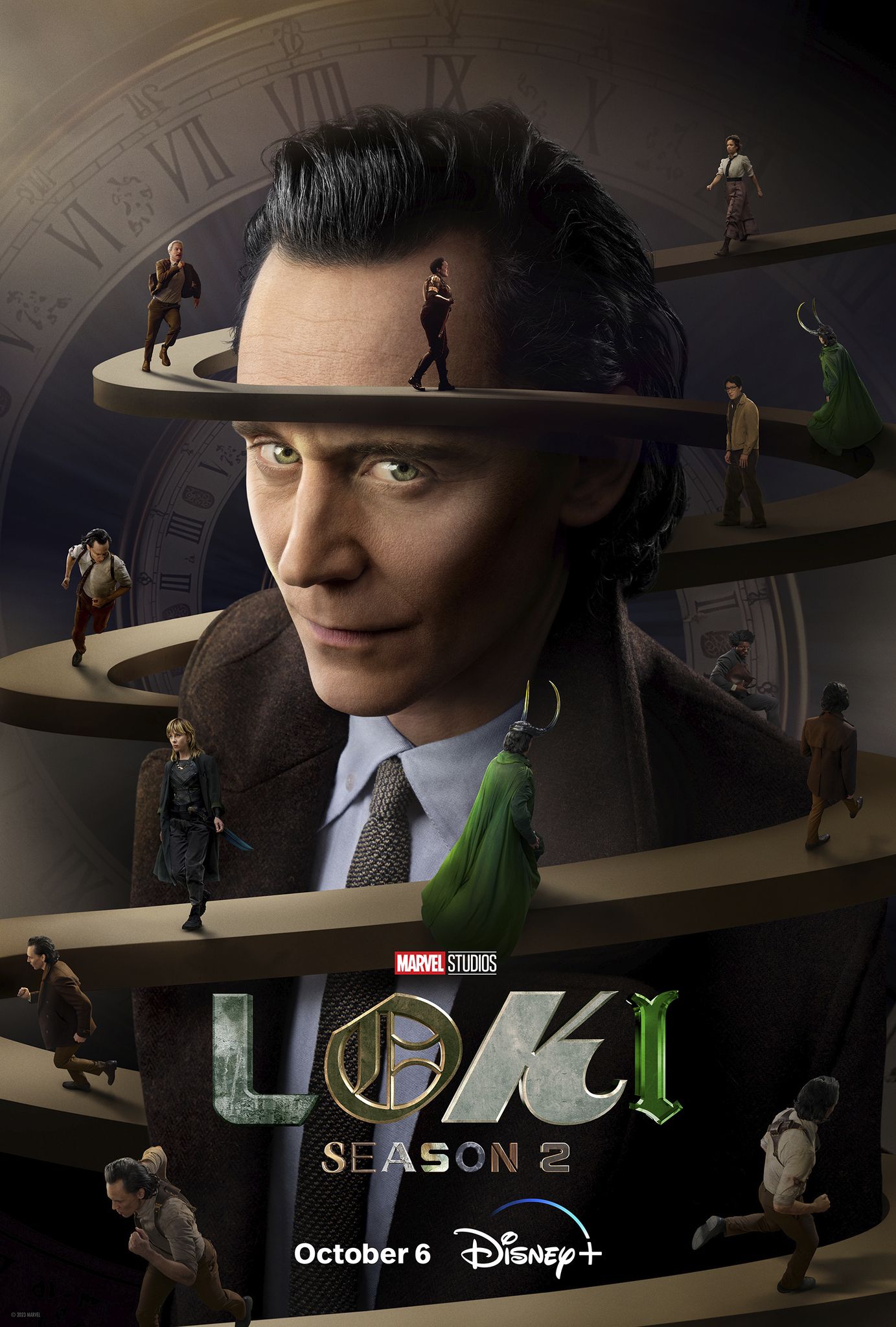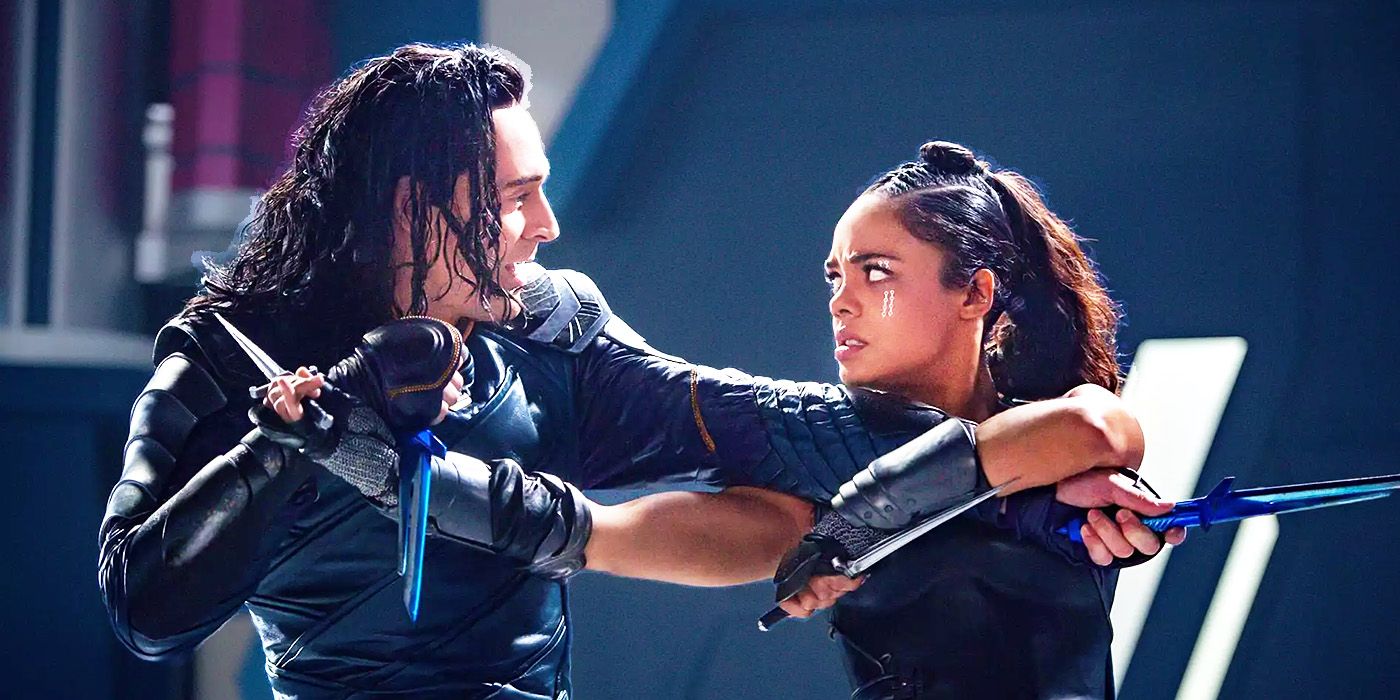
Editor's Note: The following contains minor spoilers for Loki Season 2.
Article Summary
Loki's progression throughout the MCU establishes him as an indispensable and entirely unparalleled figure within the Marvel universe. Demonstrating an array of appearances, Loki's character is defined by his profound complexity and capacity for development.
Loki Season 2 offers an opportunity for the character to further develop, delve into new dynamics and relationships, and solidify his position as one of Marvel's most enduring and captivating characters.
In terms of characters, the Marvel Cinematic Universe holds a distinct advantage over other franchises. Not only does this powerhouse, which started as a comic book giant and has now become a Hollywood juggernaut, boast a vast ensemble cast built over 15 years of saturating the media landscape with superheroes, sidekicks, villains, and cameos, but these individuals have undergone multiple evolutions, akin to a sprawling book series such as The Wheel of Time. Audiences have witnessed Tony Stark (Robert Downey Jr.) spend a decade atoning for his mistakes, and Thor (Chris Hemsworth) recalibrate his purpose with the needs of the galaxy over an overlapping decade. Marvel's interconnected formula, driven by its ambitious nature and sustained success, organically fosters richer character growth than what is typically achievable in most film or television series.
That said, paraphrasing Highlander out of context, there can be only one character who reigns supreme among the MCU's impressive pool. Appropriately enough, given his goals and ego, that character is none other than the mercurial and ferociously charismatic Loki (Tom Hiddleston). Not only has the god of mischief been around practically since day one, but Hiddleston's visceral one-man performance in The Avengers posed enough of a threat to warrant Hollywood's first live-action superhero team-up. That was no easy feat. In 2012, the feral yet surprisingly vulnerable Loki played a crucial role in shaping the world's biggest franchise. Fast forward to 2023, a different version, known as a variant, once again takes center stage in the MCU's future through Loki Season 2 (which, at the moment, remains the only Marvel series at Disney+ to be renewed for another season). This leads us to the question: what sets Loki apart? What makes this scraggily-haired, walking Merriam-Webster definition of a "hot mess" so uniquely unbeatable? It's all in his character arc.
Loki
Loki, the mischievous God, emerges from his brother's shadow to embark on a thrilling adventure set after the events of "Avengers: Endgame." Starring Tom Hiddleston, Owen Wilson, Gugu Mbatha-Raw, and Richard E. Grant, this superhero series is rated TV-14 and spans across two seasons. Produced by Disney+, it guarantees an epic entertainment experience.
Loki Has Always Been a Complex Character
Redemption arcs can be notoriously challenging to pull off and often fail to satisfy audiences (see: Adam Driver's Kylo Ren). However, both versions of Loki managed to flawlessly execute their transformation, seamlessly shifting from deceitful to remorseful. The original Loki from the Sacred Timeline and his Disney+ variant share a common foundation rooted in the Shakespearean archetype of a younger sibling plagued by insecurity and jealousy towards their older brother. Despite popular belief, Loki's initial actions in Kenneth Branagh's Thor were not driven by malicious intent. He genuinely believed that Thor's impulsive and dangerous nature made him unfit to rule Asgard, and his plan aimed to safeguard his people from potential war. While earning Odin's elusive respect would be a welcome bonus along the way, Loki's intricate nature manifested in his convoluted scheme to interrupt Thor's coronation through a fake alliance with Asgard's greatest enemy. After all, what is Loki if not labyrinthine?
Loki is inherently cursed with perpetual bad luck. When he discovers his Frost Giant heritage, he is already in a vulnerable and easily hurt state. If he didn't blow the situation out of proportion, there would be no dramatic progression. Portraying Loki as Thor's tragic nemesis, prone to making terrible decisions, is both heart-wrenching and captivating. As his desperate desire for love transforms into vindictive self-destructive hatred, mixed with self-loathing, it becomes even more emotionally poignant and narratively satisfying. Taking control of the throne in Thor marks the lowest point in his psychological downfall. He tries to destroy Jotunheim to prove his worth and rid himself of the label of being a "monster" due to his Frost Giant nature. "I never wanted the crown," he tells Thor. "I only wanted to be your equal." When Odin rejects his efforts, Loki attempts to take his own life, believing it to be the only option left. Loki's reappearance in the end credits scene of Thor is a mystery and a promise, showcasing the creativity of the team and the potential for what comes next.
In Thor, intentionally, we witness the origin story of the hero and the rise of his most beloved villain. By the time The Avengers rolls around, it wouldn't be unjustified to view Loki as beyond redemption. This broken young man has become a self-mythologizing fanatic offscreen. This portrayal, admittedly, doesn't align with the tragic figure presented by Kenneth Branagh. Viewers need to read between the lines of Joss Whedon's overly simplistic writing to truly grasp the underlying emotions at play. The Loki of Thor was never solely driven by a lust for power, but rather by a deep lack of love, both real and imagined. Through this lens, enhanced by Tom Hiddleston's captivating and sinister performance, his desire to rule over Earth begins to make sense. The Avengers' version of Loki is a shattered reflection of himself fueled by intense hatred. While this interpretation is speculatory based on the established characterization in Thor, it is more cohesive and focused compared to Whedon's portrayal. Loki's attack on Earth in The Avengers is a personal vendetta against the brother he feels abandoned him, rather than merely a result of inherent megalomania. Regardless of how audiences perceive Loki in The Avengers, there is no denying his transformation from one film to the next.
Loki’s Successful Redemption Arc Kept the Character Interesting in the MCU
Image via Marvel
Angst does not excuse mass murder and planet-wide subjugation. In Thor: The Dark World, Loki's lack of remorse is not justified. However, Loki's seeming indifference is not as genuine as it appears. He deeply mourns Frigga's death because the ability to feel deeply is both his greatest strength and his biggest weakness. If this were a less captivating tale, Loki sacrificing himself to protect Thor and Jane Foster would signify the end of his story, just another redemptive death to check off a fictional list. But Loki, the god of chaos and deceit, does not conform to expectations. Faking his own demise aligns perfectly with his cunning and unpredictable nature.
Killing off a character is too simplistic. Leaving Loki alive after successfully staging a coup opens up a multitude of intriguing story possibilities. Enter Thor: Ragnarok. Taika Waititi's comedic approach may seem out of character for the Asgardian brothers, but his script delves into the core of Thor and Loki's complicated and flawed relationship with brutal honesty. Despite their conflicts, Loki should not be reduced to a purely evil character. Ragnarok understands this, presenting a Loki who fully embraces his mischievous nature. As a clever survivor, he revels in subverting expectations. Embracing heroism requires deep introspection and attempts at redemption, making Loki's journey all the more chaotic and satisfying to witness. With a six-year history by Hollywood standards, it is immensely gratifying to see Loki actively choose to protect his people. By the end of Ragnarok, Loki resembles a healed and tempered version of his former self. This narrative arc is far more rewarding than a repetitive "Thor vs. Loki" dynamic and stands as a unique journey for Loki within the Marvel universe.
By contrast, Loki's demise in Avengers: Infinity War serves as a convenient representation of Thanos's (Josh Brolin) power, but it ultimately revisits the undesirable territory that Thor: The Dark World skillfully avoided: a simplistic resolution that comes across as cheap. The circumstances surrounding Loki's death seem contrived for the sake of shock value rather than flowing naturally from the narrative. The all-too-familiar trope of a villain's redemption swiftly followed by their heroic sacrifice has become overused to the point of leaving a bitter aftertaste. (Should I shout "Kylo Ren" into the void once more?) A more engaging story would have allowed Loki to delve into the consequences of his choices, remaining true to his path, and seeking to make amends on a grander scale. Thus, for the original Loki to meet his demise in Infinity War in service of the new formidable antagonist feels not only exasperating but also ill-suited.
‘Loki’ Season 2 Lets the Character Continue Evolving
The Loki series successfully fulfills the potential that Avengers: Infinity War had nullified. Season 1's ambitions were hindered by Marvel's limited episode count, which compressed Loki's development into a mere few weeks compared to the extensive character arc he had in 10 years and four movies. Season 2 prioritizes plot mechanics over consistent character exploration, but it remains true to the series' main focus: delving into the intricacies of Loki's complex nature. The journey has been expedited, with Loki forming genuine relationships fueled by open affection. During his debate with Sylvie in Season 2, Episode 4, he firmly establishes his dedication to heroism and rejects the notion of reverting to a destructive path. Loki silently reveals that the temporary satisfaction of death, destruction, and hate is not worth it. Few understand this better than Loki himself, yet he acknowledges that the harder choice of helping others and mending broken things is the correct path.
This realization signifies a significant milestone in Loki's growth and his ability to acknowledge it to someone else. It also acknowledges the 12 years that audiences have dedicated to following his ever-changing journey. Marvel possesses impressive characters, but none can compare to the longevity, happenstance, and rich writing that have shaped Loki into a self-sustaining force. As long as Tom Hiddleston, the actor who embodies Loki with such aplomb, desires to continue portraying the character, and as long as Loki remains relevant in the Multiverse, his presence could endure for another decade. This is evident in his genuine change of heart in Episode 4, which serves as a testament to Loki's unmatched achievements, surpassing any other franchise character, be it from Marvel or elsewhere. And wouldn't Loki himself be pleased with that?
Loki is available for streaming on Disney+ in the U.S.
Watch on Disney+
Editor's P/S
Loki, the charismatic and complex character in the Marvel Cinematic Universe, has captivated audiences since his first appearance in Thor. Throughout his journey, Loki has undergone significant evolution, solidifying his position as an unparalleled figure within the MCU. His character arc, from a mischievous villain to a remorseful and heroic figure, is a testament to the depth and complexity that sets him apart from other characters.
The second season of Loki further explores his character development, delving into new dynamics and relationships while solidifying his status as one of Marvel's most enduring and captivating characters. Loki's ability to reinvent himself, adapt to new situations, and learn from his mistakes makes him a compelling and relatable figure. In a franchise filled with iconic heroes and villains, Loki stands out as a truly unique and unforgettable character, leaving an indelible mark on the MCU and leaving fans eagerly anticipating his future appearances.















